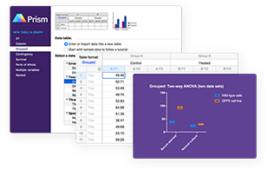 Trying
Trying
to buy a ticket to a sold-out game? To get the cheapest price you have a
decision to make: when to buy. During a visit to a sold-out basketball
game at Duke University, “Science Nation” put the question to some
die-hard Duke Blue Devil fans just prior to tip-off. With tickets in
hand, many were adamant that the closer to game time, the more costly
the ticket.
“Right
now, my ticket is real valuable. We spent six hours driving here,”
exclaims one fan. “People who don’t have tickets will bring extra money
to make sure they get in the game,” insists another fan. “People who
really want to get in are going to spend more. I’m here . . . whatever
it costs,” cries out another one.
It
turns out those opinions are almost always wrong! According to Duke
University economist Andrew Sweeting, those tickets likely cost more
three months before the game. Just before game day is actually a good
time to buy. With support from the National Science Foundation (NSF),
Sweeting and his team of graduate students are researching the science
and complexities of perishable goods markets, meaning markets for
products with expiration dates. The researchers are using ticket pricing
as a case study.
“The
overall aim of my research is to understand how sellers behave and how
markets of these kinds of goods should be designed. Once you look at how
prices behave, that has a lot of implications for how consumers think
about timing their decisions in these markets,” explains Sweeting.
His
research has important and direct implications for brokers’ pricing
decisions and the regulation of certain types of markets, but a side
benefit for consumers is the information about when to get the best
deals.
Sweeting
studies websites such as StubHub.com that specialize in buying and
selling tickets on the secondary market, including tickets to major
league baseball games. He finds a consistent and strong trend of
declining prices as a game approaches. “Even for the highest demand
games such as Red Sox-versus-Yankees games, prices tend to decline,”
notes Sweeting. “Even popular games have a lot of availability of those
tickets close to the game.”
Sports
tickets are a very different beast than airline tickets where the
closer you are to take-off, the more likely prices will soar. According
to Sweeting, airlines know that people who decide that they want to
travel at the last minute, such as business people, tend to have pretty
inflexible schedules and are willing to pay very high prices. Leisure
travelers are less willing to pay high prices, but are also more likely
to know that they want to travel well in advance. Airlines will
therefore try to encourage leisure travelers to buy early by giving
advance purchase discounts, so that they can set high last minute prices
to extract as much revenue as possible from business travelers.
“It
just doesn’t pay for airlines to unload unsold tickets by lowering
prices at the last minute,” says Sweeting. “For sports events, there is
no reason to believe that people who decide they want to go to a game at
the last minute will be willing to pay more than dedicated fans who may
plan to go to a game months in advance.”
So
Sweeting says the bottom line as far as tickets go is to buy at least
two weeks early if you’re looking to save on airfares, but for most
performances and athletic events, buy early only if you’re looking for
certain seats or a certain number of seats together. That applies to
everything from the contentious Red Sox-Yankees match-ups to the mighty
Blue Devils of Duke.
The research in this episode was funded by NSF through the American Recovery and Reinvestment Act of 2009.




